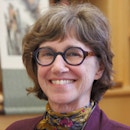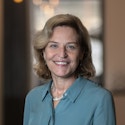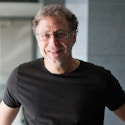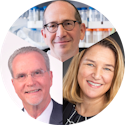On 23 April, Gail Mandel presented the complex pathology of Rett syndrome and discussed whether this autism-related disorder would be amenable to gene replacement strategies.
Her talk was part of the Simons Foundation Autism Research lecture series. You can watch a complete video recording of the event above.
About the Lecture
A central goal in neuroscience is determining the genetic basis of neurological disorders — from autism to brain tumors. Many of these pathological states result from defects in gene regulatory programs that are fundamental to all cell types but lead to dysfunction specifically within the nervous system. Mandel investigates the basis of this phenomenon and has identified cell-cell interactions between neurons and glia — brain cells that support neurons and help process information — involved in brain development.
Mandel has been able to treat the brain pathology of one autism-related disorder, Rett syndrome, by genetically replacing the defective MeCP2 gene with a good copy of the gene in astrocytes — a type of glia. She is exploring the underlying mechanisms crucial for neuronal signaling.




